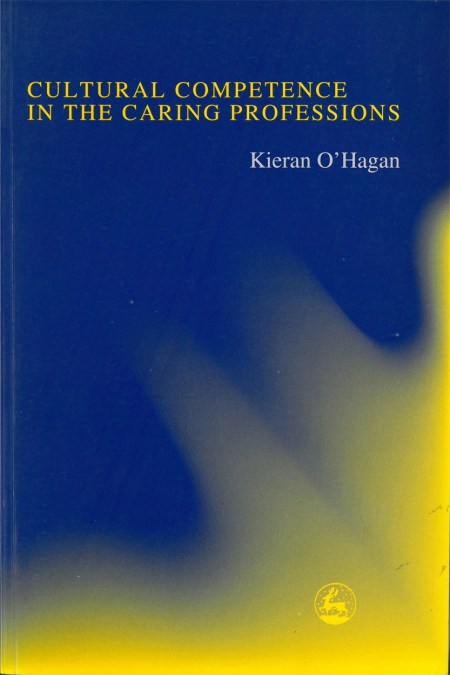The right of minority groups to define their culture and identity in their own terms is the central theme of this book. O’Hagan argues that a comprehensive definition of culture, and an awareness of all the issues involved, may enable practitioners to fulfil their statutory obligations more effectively. The current assumption of much literature in the caring professions that race is the most crucial component of cultural identity, is challenged. O’Hagan takes a practice-orientated approach, providing case study examples of how self-awareness tools may be employed within the caring professions.
The book is divided into three parts. The first part illustrates the challenge of cultural competence for practitioners by describing the experiences of clients in contact with public agencies. The meaning of culture and identity is explored, based on different theoretical approaches, including social theory and international relations theory. The second part identifies many features of the caring professions which have not been conducive to acquiring cultural awareness and sensitivity. This leads on to the last part, which analyses frameworks for good practice. Each of these frameworks will enable the reader to explore their own attitudes and approaches to different aspects of culture. This book is essential reading for all those working with minority groups in the caring professions.
The book is divided into three parts. The first part illustrates the challenge of cultural competence for practitioners by describing the experiences of clients in contact with public agencies. The meaning of culture and identity is explored, based on different theoretical approaches, including social theory and international relations theory. The second part identifies many features of the caring professions which have not been conducive to acquiring cultural awareness and sensitivity. This leads on to the last part, which analyses frameworks for good practice. Each of these frameworks will enable the reader to explore their own attitudes and approaches to different aspects of culture. This book is essential reading for all those working with minority groups in the caring professions.
Newsletter Signup
By clicking ‘Sign Up,’ I acknowledge that I have read and agree to Hachette Book Group’s Privacy Policy and Terms of Use
Reviews
The idea of cultural competence has become the big idea in health care and is beginning to creep into social care. This is a useful book that provides an opportunity to reflect on the issues and differences between anti-racist and culturally sensitive practice.
This material will be a good teaching resource, and is rightly included as part of the way forward, for by the end of this book, O'Hagan has made a convincing case for people who work in the caring professions to develop and practise improved levels of cultural competency.
This book provides a great resource for students and practitioners learning about cultural sensitivity. It is challenging, and the personal disclosures in the Acknowledgements and Epilogue speak for the sincerity with which the challenges are made. I encourage people in the caring professions to take them up.
